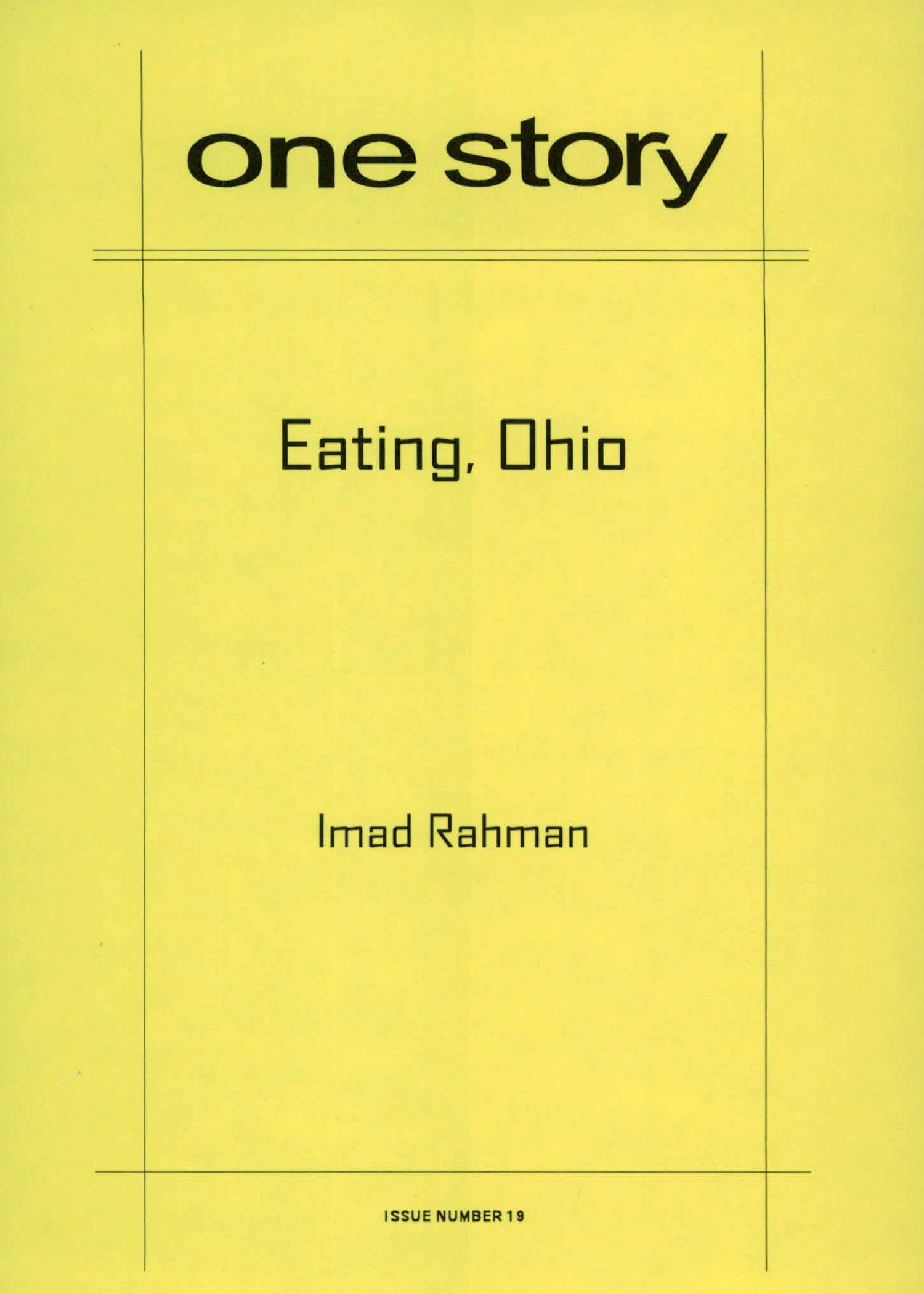
Eating Ohio
$2.50
Sold out
Excerpt
I was at a low point in Eating, Ohio. My acting career was headed nowhere. I had one bad leg, with this feeling needle-like in the nerves. My ex-wife, Eileen, had run off to Brazil, but I still lived at her house. I thought I could lick this rut by staying put, by taking my punishment and barking back like a man.
I worked as the Zima Zorro at the Ancient Mariner Sports Bar and Grill. I had to wear a three-piece corduroy suit with a black polyester cape and a floppy sword. A pencil-line mustache snaked around my upper lip. I’d paint a large ‘Z’ on my forehead, put on a black eye-mask, show up each sweaty happy hour, and sit around the bar trying to look wonderfully cool and refreshed as I chugged elegantly on a six-pack of Zima. This was because no one was drinking any Zima.
Imad Rahman
Imad Rahman’s first collection of stories, I Dream of Microwaves, will be published by Farrar, Straus and Giroux in the near future. He has previously had stories in Gulf Coast, Chelsea, The Sonora Review, and The Madison Review. He got his MFA from the University of Florida and was the 2001-2002 James C. McCreight Fiction Fellow at the University of Wisconsin-Madison. He still lives in Madison.
Q&A by Hannah Tinti
- HT: Where did the idea for this story come from?
- IR: I’d been reading Barry Hannah’s Airships, a consistently humbling experience, but one worth taking if you want to learn from the best. I couldn’t make it through “Constant Pain in Tuscaloosa” without first cracking up repeatedly and then feeling bad for finding misery so amusing. I wanted, then, to write something that was funny, but that also went beyond funny into some sort of zone of poignancy. I also wanted to have two dudes beating up on each other in a funny-but-sad way. Then I was at a bar in Gainesville, Florida and saw a magician all decked out like a mascot, weaving around tables and booths filled with indifferent undergrads. He smiled in a miserable sort of way while he pulled stuff out of his sleeves, etc. and handed out sample whiskey shots. I thought he must really be bummed out and ready to launch into some random act of violent desperation. Later, a friend of mine showed me a newspaper clipping about porno crews in California renting these suburban homes for the weekend, looking, ostensibly, for verisimilitude of bourgeois decadence. I put two and two together and came up with this story.
- HT: Does it connect thematically to the other stories in your collection?
- IR: The collection is made up of connected first-person stories, all told in the same voice. On one level, they’re about KAJ (Kareem Abdul-Jabbar) trying to make his way through an assortment of weirdly shitty jobs. Flannery O’Connor once said that all stories are about money or family. This is definitely a money book, or a lack-of-money book. And if family means the desperate search for love or companionship or whatnot, then maybe it’s a family book too (and a lack-of-family book to boot), but not of the PG-13 variety. So to make a long answer short, it’s thematically connected to all the other stories in the way that we want generally exceeds what we need, which in turn generally exceeds what we have. Or something like that.
- HT: What was the most challenging aspect of writing this story?
- IR: Making all the disparate storylines come together in a manner that felt satisfying.
- HT: Do you have any acting experience?
- IR: A little on the stage, a little in real life, nothing major.
- HT: Where did you come up with the gold Nike swoosh tooth?
- IR: My writer friends shouldn’t get drunk and tell me stories if they don’t want me to cannibalize their lives. I was at a diner with a couple of friends at about two a.m. and somehow the gold tooth came up, in an alcohol-fueled flurry of non-sequiturs. I said right there and then that I would steal it and I did.
- HT: How long did it take you to complete this story?
- IR: Three months. I went through about three drafts here. The first one was forty pages or so. I was working on my MFA thesis at the time at the U of Florida with Padgett Powell. I took this story in to him and he looked at it quickly, looked at me quickly, and then put a line through the first five pages. The subtext was, I believe, that if I kept writing stories that didn’t start till page 5, perhaps I should think about starting on page 5. I went back and cut it down to about twenty-five pages, and then imagined Colonel Powell putting a line through the first five pages and the last five pages. I cut out an interesting-but-unnecessary storyline and came up for air with this lean, mean version.
- HT: What is the best bit of advice about writing you have ever received?
- IR: You can get away with anything if you set it up from line one.
- HT: What are you working on now?
- IR: A novel. It hasn’t made the transition from head to page as yet, though.